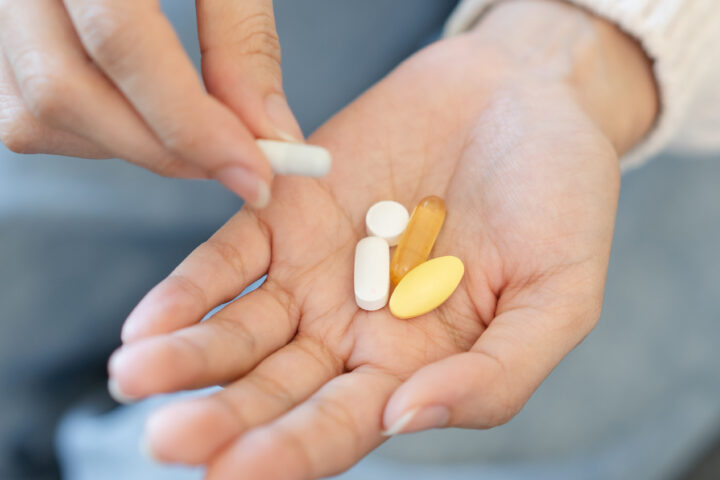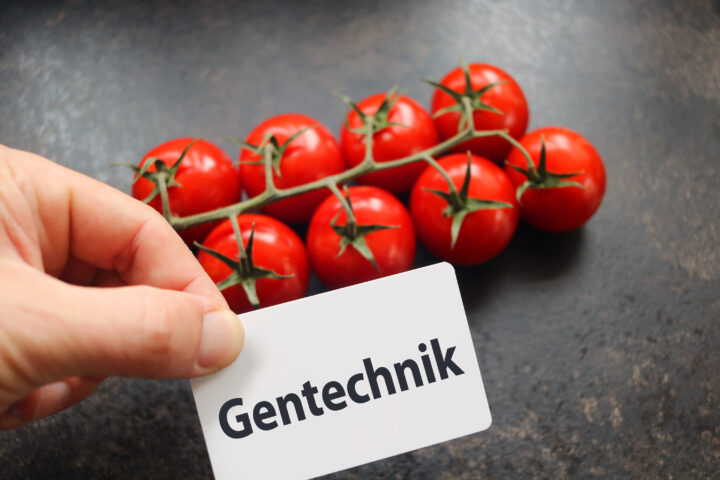
Will the food of the future be grown in a laboratory?
The global food system is currently responsible for approximately one third of all greenhouse gas emissions. Animal products, which require a large amount of land to produce, are one of the major contributors. For this reason, a number of start-ups are working eagerly on alternative protein products that require fewer resources and no animals, and are produced using industrial processes. After all, to feed more than nine billion people, all options and technologies have to be considered.
Tuesday, April 4, 2023
Norddeutscher Rundfunk (NDR) asks the provocative question of whether, given the impact of food production on the climate, the end of agriculture is near. Of course, a serious answer would have to be no. The fact is, however, that the production of animal products such as milk, cheese, or meat requires considerable use of natural resources such as land or water. Livestock farming also generates greenhouse gases, methane in particular, that are harmful to the climate. More technology and sensible alternatives to animal products will therefore be needed in the future. The NDR program explores the question of how animal products could be made ‘animal free’ in the future.
Milk and cheese from a tank
Berlin-based start-up FORMO offers one approach. “We produce proteins without the use of animals,” explains Viktoria Reinsch, Director of Brands & Communication at FORMO. The start-up’s basic idea is to produce the milk proteins needed for food using microorganisms instead of cows. Using biotechnological methods, the company’s researchers have identified the genes in cows that are responsible for milk production.
Ambitious goals
These genes are then applied to microorganisms, which in turn generate the milk proteins. According to information provided by the company, FORMO uses a bioreactor in which the microorganisms can produce the milk proteins faster and with less impact on the environment. The result is a white protein powder that is used as a starting product for various ‘animal-free’ dairy products. Fifty million euros have been invested in the start-up to date. FORMO aims to capture ten percent of the European cheese market with its products. This is certainly ambitious and not all cheese lovers are likely to be won over by these products. However, there are sure to be some niche areas where such products can compete with conventional animal products in terms of taste and eventually become part of our food culture.
All about industry
In the future, cheese may not be the only product to come out of a laboratory. Intensive research into alternative meat products is also ongoing. Jörg Reuter, Head of Food Campus Berlin, believes that, in the future, foods such as meat will be produced in huge vats, like those used in breweries: “They will be built somewhere on the outskirts of cities and will be more akin to industrial processes than agricultural processes.” Egg substitutes could also be produced in this way. The company Perfeggt based in Berlin, for example, uses an industrial process to produce eggs from peas.
Food Campus Berlin compares the transformation of the food system with the Industrial Revolution. The food system of the future will have more to do with industry than any idyllic, romantic notions of farming. It is worth noting, however, that plant-based proteins still have to be cultivated. And this will continue to require farmers, agricultural land, and agricultural inputs in the future.
Bioreactor instead of bio-agriculture: the key to increasing biodiversity
The NDR program also includes a segment in which the environmental organization called rePLANET have their say. The organization’s aim is to restore 75 percent of the earth’s landscapes. Reducing land usage is therefore vital. The maxim is: Sustainable is more important than natural. Organic farming does not represent a viable alternative as it also eats up land and harms the climate. This statement is supported by several studies, which recommend productive agriculture. rePLANET goes even further: “Food will eventually be produced in tanks,” comments Martin Reich of rePLANET. Food architect Tilo Hühn from the ZHAW comes to the same conclusion: “Truly sustainable food will one day also come from a bioreactor.” The required reactors will one day need a lot of electricity. But environmental organization rePLANET also has a solution for this: nuclear power.
Resource-efficient food production adapted to the specific location
The stakeholders showcased in the NDR program are not lacking in ambition, which is a good thing, as only an efficient use of our resources across the board for food production is truly sustainable. An efficient use of resources means the yield of a certain product in relation to the resources used, such as capital, labor, raw materials, or land. Sustainable food production must use resources efficiently. However, despite the promise for the future, it should also be clear to the NDR that it is unlikely that industrial processes will ever entirely replace conventional food production, and nor should that be the goal.
Agriculture must achieve higher crop yields and produce affordable food with the same or decreasing use of resources such as arable land, labor, energy, finances, water, pesticides, and fertilizers, while also protecting natural resources and the climate. Livestock farming can also be an expedient and efficient use of farmland, especially in Switzerland, where 70 percent of agricultural land is grassland. If humans want to use this land to produce food, they need ruminants such as sheep, goats, or cows. Even if a transition to crop cultivation is possible in part, it is not feasible everywhere. Farmland would thus be used for resource-efficient food production adapted to the specific location, as specified in the Swiss Federal Constitution.
New income streams for farms
However, there is certainly considerable potential for technological innovation in the food system. Alternatives to animal products produced in labs are to be welcomed, even if they do not yet meet the standards of quality of many consumers, are not yet scalable, and cannot yet compete with the original products in terms of price, as demonstrated by the example of Remilk at the Swiss-Food talk on Future Food. Alternative products are unlikely to displace high-quality animal products in the coming decades. But where it makes sense for consumers, we will soon become accustomed to them; not least for the sake of the planet. This does not have to be bad news for farmers.
Studies are already evaluating new business models for the decentralized production of cell-based meat on farms, for instance. If it is already possible to farm and market shrimp in rural areas today or to produce certified organic mealworms for human consumption, such options are not such an absurd idea for an alternative income stream for farms.
Sources
Norddeutscher Rundfunk (NDR): Ende der Landwirtschaft? Das Essen der Zukunft kommt aus dem Labor.
Kindly note:
We, a non-native editorial team value clear and faultless communication. At times we have to prioritize speed over perfection, utilizing tools, that are still learning.
We are deepL sorry for any observed stylistic or spelling errors.
Related articles

Residue is not the same as residue
Painkillers like Voltaren are a blessing for us – yet in our rivers they can harm fish. If these were crop protection products, calls for bans would be immediate. It becomes clear that we are applying double standards.

ARTE documentary: Genetic engineering in organic farming?
The ARTE documentary “Genetic engineering in organic farming?” examines key controversial questions of modern agriculture: Is the general exclusion of new breeding technologies still up to date? Can the resistance of organic farming be justified scientifically?

The Great Suffering of Farmers
Fire blight, Japanese beetles, or grapevine yellows – farmers in Valais, too, are increasingly feeling helpless in the face of the threats posed by nature. More and more often, they lack the means to effectively protect their crops. This makes it all the more important for the Federal Council to place a pragmatic balancing of interests at the forefront when setting threshold values.

'Tomatoes on your eyes'
The submitted “Food Protection Initiative” calls for “GMO-free food.” Leaving aside this illusory demand, its adoption would mean more bureaucracy, more trade barriers, and less innovation. The Swiss Farmers’ Union describes the proposal as “unnecessary” and warns of a setback to the goal of achieving an even more sustainable agriculture.

